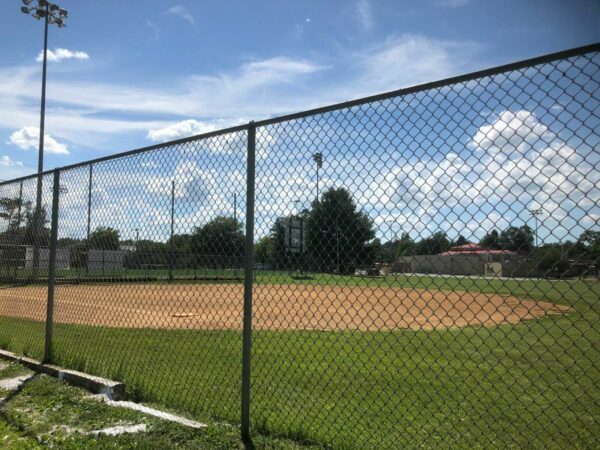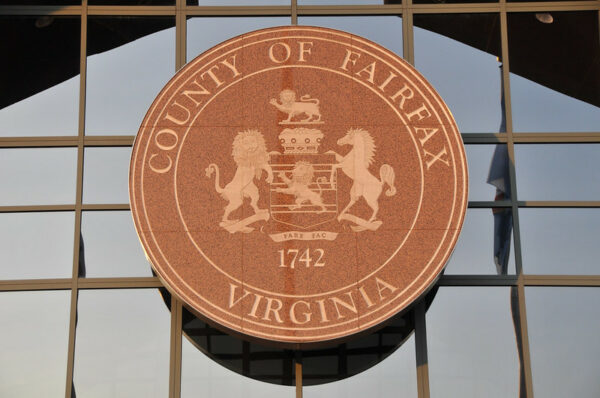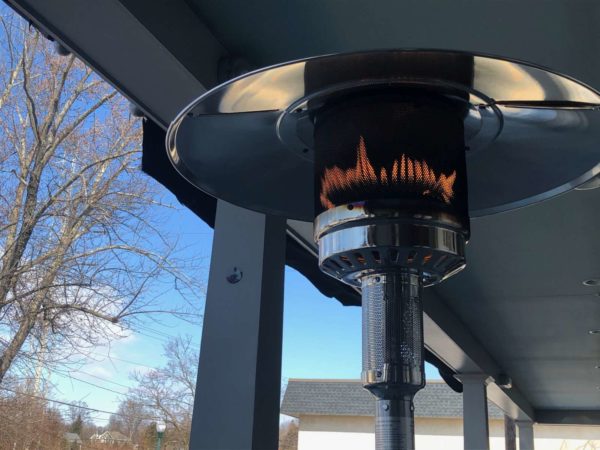
New Laws Take Effect in Virginia — A host of new laws passed by the General Assembly take effect today, including the legalization of simple marijuana possession, the abolition of the death penalty, and a requirement that drivers change lanes when passing bicyclists. The fine for littering is now $500, up from $250, and it is now illegal to intentionally release a balloon outside. [Patch]
MPAartfest Returns In Person This Fall — The McLean Project of the Arts announced yesterday (Wednesday) that its annual, free art festival will officially be back in person at McLean Central Park from 10 a.m. to 4 p.m. on Oct. 3. The event will feature a one-day juried fine art and craft show/sale, food vendors, and more. It will also stream online. [McLean Project for the Arts]
Jones Branch Connector Awarded — “The Jones Branch Connector, a joint effort by the Virginia Department of Transportation (VDOT) and Fairfax County to build a new crossing over the Capital Beltway in Tysons, has been named the 2021 National Project of the Year by the American Society of Highway Engineers.” [VDOT]
1st Stage Finds Success with Return to Live Theater — Almost 1,000 people attended 1st Stage’s Celebration at The Boro on Sunday (June 27), according to an email sent to supporters yesterday. The event, which centered on a concert reading of the musical “A New Brain,” was the Tysons theater’s first in-person production since February 2020 and raised $87,000 for the venue. [1st Stage]

The Fairfax County Board of Supervisors is working its way toward letting public workers collectively bargain in the wake of a statewide change in 2020 to lift a decades-old restriction.
A board’s personnel committee met yesterday (Tuesday) to discuss a draft ordinance that would let Fairfax County workers make union contracts with the county government, giving them the power to negotiate pay and other benefits.
“I think we’re moving in a good direction,” Dranesville District Supervisor John Foust said after sharing concerns that the proposed ordinance might exempt too many employees from collective bargaining.
While managers, supervisors, volunteers, and other workers are slated to be excluded under the draft ordinance, the board is looking at where temporary workers such as summer lifeguards and seasonal park workers as well as non-merit employees should fall.
The proposed ordinance would serve as the framework for what can and can’t be done through collective bargaining. Once approved, it would allow workers to vote to form a bargaining unit, and employees who don’t want to be involved wouldn’t have to pay dues but could still receive the benefits of the change, Mason District Supervisor Penny Gross said.
The draft discussed Tuesday calls for collective bargaining agreements that would last three years or longer, with separate units for general government employees, police, and fire and emergency services. It also bans strikes and spells out numerous other issues.
The county’s ordinance would be separate from Fairfax County Public Schools, which has over 24,000 employees.
Gross, who chairs the personnel and reorganization committee that’s overseeing the development of the draft, said she expects the board will pass an ordinance, which could happen this year.
SEIU Virginia 512, a union that already includes over 2,000 members in Fairfax County from dues-paying maintenance workers and nurses to librarians and social workers, welcomed the board’s overall support.
But union president David Broder says the ordinance still falls short in several areas. Namely, he says it “artificially narrows” the scope of bargaining, excludes working conditions among the topics that can be negotiated, and could potentially leave thousands of workers out of the collective bargaining process.
“We’ve learned during the pandemic…that being able to bargain over working conditions is critical,” Broder said, noting the importance of safe and clean work sites, personal protective equipment availability, and scheduling.
Lee District Supervisor Rodney Lusk shared concerns about working conditions for public works and sanitation workers, expressing support for change.
Collective bargaining agreements could involve some 10,000 workers, Gross told Tysons Reporter, and the board is gathering more information on non-merit employees to help with its determinations.
“We have one opportunity to get this right, which is why we’re taking a little extra time to work on the ordinance,” Gross said.
In 1977, the Supreme Court of Virginia ruled that public-sector collective bargaining agreements weren’t permitted and existing ones were invalid, noting the state legislature could change that.
The General Assembly and governor approved legislation last year that gave localities the authority to develop ordinances for recognizing labor unions and permitting collective bargaining. That measure took effect on May 1.
The personnel committee will meet again on July 20, and the board expects to have a public hearing in October.
Photo via Machvee/Flickr
If you’re passing a cyclist or group of riders in a vehicle, you’ll soon have to change lanes a lot more.
A new law going into effect July 1 will require drivers to switch lanes if they can’t maintain three feet of distance when passing cyclists.
The Fairfax County Police Department says this means motorists may have to cross double yellow lines, imploring people to “share the road.” Police told Tysons Reporter that they hope people will abide by the new legislation and help keep everyone safe on roadways.
“I think it’s going to be huge in the long run,” Fairfax Alliance for Better Bicycling President Bruce Wright said Monday while stopping during a bicycle ride on the Washington & Old Dominion Trail. He acknowledged that the change may require some education.
Wright says the new law means that vehicles will generally need to shift lanes, because lanes in the state are typically 11 or 12 feet wide.
“In effect, almost every lane in Virginia will require a motorist to safely pass,” he said.
The state law was adopted in February after General Assembly legislators removed a provision that would have allowed cyclists to treat stop signs like a yield sign.
Some states, including Delaware, allow the so-called “Idaho stop” for bicycle riders. Like Virginia, Washington, D.C., considered the stop-as-yield measure but also declined to adopt it.
The new law also ends a requirement for cyclists to file into a single lane when being passed.
Tensions between cyclists and drivers played out on the county police department’s Facebook post about the issue. Several people noted cyclists should obey traffic laws, too.
Wright says those online arguments between cyclists and drivers are similar to honking as well as dangerous behaviors on the road.
“There’s so much animosity, and it’s aggressive,” Wright said.
Some people on social media questioned whether double yellow lines should ever be crossed.
Current law already allows drivers to cross double yellow lines when passing others, including cyclists, skateboarders, and scooters. Another provision involves giving enough distance to mopeds, animal-drawn vehicles, and more when drivers pass them.
Pedestrian and bicycle safety is a persistent concern in Fairfax County, where seven pedestrians and two cyclists have died in car crashes so far this year. Whether these new laws help alleviate those issues remains to be seen.
Starting July 1, adults 21 and older in Virginia can legally possess up to one ounce of marijuana.
Ahead of that date, local police departments say they are preparing their officers, while advocates say the bill needs serious retooling to keep kids out of the juvenile justice system and help reverse the harm done to Black and brown communities after decades of unequal enforcement.
“We still have time to fix many of these things,” Chelsea Higgs Wise, executive director of the racial justice and cannabis advocacy group Marijuana Justice, said. “Between now and then, we have elections. We have to talk to people about how they’re going to take this legalization forward while centering equity. This is not over.”
The Virginia General Assembly passed a law earlier this month accelerating the legalization of weed from July 2024 to this coming summer. The law will be reenacted in 2024, when recreational, commercial sales are legalized.
Through June 30, the possession of less than one ounce of cannabis will remain “decriminalized” — that is, it is penalized with a fine, but the incident does not show up on a person’s criminal record.
The new law legalizing cannibis essentially permits those 21 and older to use marijuana inside their homes, and possibly in their backyards; grow up to four plants; and possess up to one ounce of cannabis. The plant must be in a manufacturer’s container for someone to drive with it in the car legally.
Giving cannabis to someone underage is considered a felony, while students younger than 21 who are found in possession of the plant on school grounds would be charged with a misdemeanor. A clause requires court-ordered drug treatment services for individuals 20 and under found with the plant.
People in jail for marijuana-related crimes will remain there, Virginia Mercury reports.
Here are the top areas of interest and concern for police officers, people in the criminal justice system and advocates.
Marijuana-related arrests
Although marijuana-related arrests have been trending down recently, Falls Church City Police Chief Mary Gavin says that one potential consequence of marijuana legalization is more people driving while stoned.
“There are going to be obviously growing pains,” Gavin said. “My biggest concern, in terms of public safety, is the possible increase of driving under the influence.”
According to data provided to Tysons Reporter by the police departments, cannabis arrests appear to be trending down slightly in both Fairfax County and Falls Church City. A chart supplied by Fairfax County Police Department shows arrest rates peaking in 2018 before dropping off dramatically in 2020.
The Falls Church City Police Department reported a similar pattern. It made 61 and 63 arrests in 2018 and 2019, respectively, followed by 17 arrests in 2020 and none so far this year.
Herndon Police Department spokesperson Lisa Herndon said the town had about 125 marijuana-related arrests from Jan. 1, 2018 to Dec. 13, 2020.
Gavin attributed the recent drop-off in arrests to a combination of the COVID-19 pandemic and a policy change introduced by Fairfax County Commonwealth’s Attorney Steve Descano, who ceased prosecuting simple marijuana possession cases against adults when he took office on Jan. 2, 2020.
Descano told Tysons Reporter that he stopped prosecuting marijuana cases because it would be the right approach for community safety and racial equity. His office estimates that more than 1,000 cases have since been dismissed.
“While the opposition to this decision was intense at the time — so much so that we planned to create a bail fund in case our attorneys were held in contempt of court and jailed — I am pleased that other jurisdictions followed suit and marijuana has now been legalized across the Commonwealth,” Descano said. Read More
Virginia Becomes First Southern State to Abolish the Death Penalty — Gov. Ralph Northam signed legislation yesterday (Wednesday) that made Virginia the 23rd state to eliminate the death penalty. The move reflected a “dramatic shift” for a state that has recorded the second-most executions in the U.S. Del. Mark Keam (D-Vienna) celebrated the new law as “one of the most consequential votes” he’s cast in his 12 General Assembly sessions. [Associated Press]
Inova Mass COVID-19 Vaccination Site to Open Next Week — The mass vaccination facility that Inova Health Systems is setting up in Alexandria will open next Monday (March 29), Fairfax County Board of Supervisors Chairman Jeff McKay says. The site has the capacity to vaccinate about 12,000 people per day and “will be particularly helpful to those in South County.” [Chairman Jeff McKay]
Judge Sets Hearing for Park Police Shooting of McLean Resident — U.S. District Court Judge Claude M. Hilton has scheduled a status hearing for April 23 to determine whether the two Park Police officers charged in the 2017 fatal shooting of Bijan Ghaisar “can be criminally prosecuted by the state of Virginia…or whether they fall under amnesty for federal officers from state criminal laws.” [The Washington Post]
Virginia Senator Discusses Experience with COVID-19 — “During a Senate health committee hearing earlier this month, U.S. Sen. Tim Kaine made a surprising admission: Long after contracting COVID-19, the Virginia Democrat is still experiencing strange symptoms. Kaine revealed last May that he and his wife had tested positive for COVID-19 antibodies following an onset of symptoms in March.” [U.S. News]
Falls Church Native Develops Website to Help Navigate Vaccine Registration — 20-year-old Thomas Jefferson High School for Science and Technology graduate Eric Lin worked with a classmate at Harvard University to design a website called COVID Vaccines Info Guide that “would act as a one-stop-shop that provides comprehensive information for all 50 states.” [Falls Church News-Press]
McLean Resident Opposes Proposed Comprehensive Plan Changes — A Dominion Woods resident argues that Fairfax County’s proposals for revitalizing downtown McLean would overburden schools and create longer commutes by inviting an influx of new residents with “little upside” for existing residents. He says residential construction should be capped at 960 units over the next 10 years, high rises should be prohibited on properties next to Franklin Sherman Elementary School, and additional traffic studies should be conducted. [Connection Newspapers]
Fairfax County Public Library Introduces Text Service — “Beginning today [Mar. 1], you can text your #Fairfax library questions to 571-556-5025 and receive answers in real time 10 a.m. to 5:45 p.m. Monday thru Friday. If it’s not during those real-time hours, send a text & a ticket will be automatically generated. We’ll respond when available.” [Fairfax County Public Library/Twitter]
New Police Reform Laws Take Effect — Several police reform laws passed during the Virginia General Assembly’s special session last year took effect yesterday, including a ban on no-knock search warrants, new statewide training standards related to racial bias and deescalation, and a “Marcus Alert” system that limits the role of law enforcement in responding to behavioral health issues. [@GovernorVA/Twitter]
Fairfax County Seeks Input on Active Transportation Plan — “The ActiveFairfax Transportation Plan will establish a vision and a roadmap for implementation of safe, convenient, and enjoyable streets, sidewalks, bike facilities, and trails in Fairfax County. “Community input is critical to the success of this planning effort,” said Chris Wells, the Active Transportation Program Manager at FCDOT.” [Fairfax County Department of Transportation]
McLean High School Kicks Off Football Season With a Win — “The McLean Highlanders opened their high-school football season with a 28-14 victory over the visiting Mount Vernon Majors on Feb. 27. McLean fell behind 7-0 on a long touchdown pass, then rallied.” [Sun Gazette/Inside NoVA]
Using a mobile phone while driving will officially be illegal in Virginia starting on Jan. 1.
Current state law prohibits reading a phone and texting while driving and holding a phone while driving through a work zone, but the Virginia General Assembly adopted legislation barring the use of handheld phones while driving a moving vehicle on state highways in March.
While the law was technically enacted on July 1, its effective date was delayed until the new year so that the public could be educated about its provisions and law enforcement agencies could get training on how to enforce it.
Violations of the new law will be punishable by a fine of $125 for the first offense and $250 fine for any subsequent offenses.
There are a few exceptions to the ban on using a phone while driving, including:
- Emergency vehicle operators who are performing their official duties, including law enforcement and fire and medical responses
- Drivers who are lawfully parked or stopped
- Someone using their phone to report an emergency
- The use of an amateur or citizens’ band radio
- Department of Transportation vehicle operators who are performing traffic incident management services
Virginia’s public information campaign on the new law is being led by Drive Smart Virginia, a nonprofit dedicated to promoting traffic safety.
According to Drive Smart Virginia, the Virginia Department of Motor Vehicles reported that 15% of all fatal crashes in 2018 were related to distracted driving. Fairfax County has the second-most distracted driving fatalities in the state, surpassed only by Prince William County, and the most injuries that result from distraction-related crashes.
The distracted driving ban is perhaps the most significant legal change coming to Virginia on New Year’s Day, but it is not the only new law that will take effect on Jan. 1.
Here are some other measures to be aware of when the new year arrives:
- HB 264: requires in-person training for concealed handgun permits, removing online or electronic courses as an option for demonstrating competence
- HB 1211: enables undocumented immigrants to apply for new driver privilege cards so they can legally drive
- HB 66: prohibits health insurance companies from charging more than $50 per 30-day supply for prescription insulin
- HB 789: sets a 36% annual rate cap on the interest and fees charged for a short-term loan, which can now go up to $2,500
- SB 172: protects people who receive emergency services from an out-of-network healthcare provider from unexpected medical costs
- HB 1407: prohibits employers from misclassifying employees as independent contractors
- HB 742: gives localities the authority to regulate the takeoff and landing of unmanned aircraft on public property
Photo via Alexandre Boucher on Unsplash
Employment at will is a legal agreement that allows employers to fire employees without warning, reason, or explanation. Similarly, this working arrangement makes it possible for an employee to leave a job without cause or notice if they choose.
While at-will employment gives employees little or no protection if they get fired for discriminatory reasons, it has become increasingly popular in recent years.
Is At-Will Employment a Blank Check to be Fired?
At-will-employment may sound like a blank check for employers to fire employees without any reason. Since this type of employment arrangement does not include requirements like notice or severance pay, it is easy to assume employers have excess power over their employees, meaning they can dismiss them without cause. However, that is not always the case.
Some states have laws that make “at-will” agreements unenforceable to protect employees. For example, California’s Wrongful Termination Act prohibits employers with five or more workers from dismissing employees without good cause. That means employees whose employment has been terminated for unlawful reasons may qualify for compensation through a wrongful termination lawsuit.
Legal Protections of At-will Employees
Whether or not an employee is working under the at-will employment agreement, their rights are protected by state and federal workers’ compensation laws. “Wrongful termination includes termination based on: sex, race, age, religion, national origin and/or disability. Current US law also doesn’t allow employees to be fired for retaliation or outward disagreement with illegal business practices (whistleblowers),” says Georgia Business Lawyer, Jonathan Sparks.
In addition to this protection, employees also have certain rights granted by the government, such as a minimum wage requirement, equal pay, and overtime pay. The Equal Pay Act also protects both men and women who perform similar work but receive different compensation by requiring gender equality between wages paid to male and female employees.
An employer may also not retaliate against an employee for exercising these rights or participating in other protected activities. These include filing complaints about illegal employment practices with regulatory agencies like OSHA (Occupational Safety & Health Administration) or NLRB (National Labor Relations Board).
How to Prepare for Employment-At-Will Agreement Before Signing It
To protect yourself from discriminatory employment termination, you need to make it clear in your employment contract. For example, you can include a statement saying that the employer has no right to terminate your employment except for cause or outlined in the document. Additionally, have your contract include a clear notice about how long this period lasts — typically one year. If you meet these requirements, an employer may not terminate your employment without reason, even if you signed the at-will employment agreement.
Conclusion
Just because at-will employment allows you to quit without notice, it is generally best to provide one or two weeks’ notice when you decide to leave. This helps protect your reputation with future employers. At the same time, you need to always prepare for the worst as you may never know when your employer might fire you when working under this working arrangement.
A surge in road traffic accidents and the number of deaths in such accidents was observed in the United States after the pandemic began. This trend continued into 2021, and especially during the first six months of the year, from January to June. In fact, the U.S. recorded the highest number of road traffic deaths in six months of 2021 as it has in the past 15 years.
In the first half of 2021, a whopping 20,160 deaths were caused due to road traffic accidents. This is a massive 18.4% increase from the same period the previous year. This increase has been termed as a ‘crisis’ by Transportation Secretary Pete Buttigieg. He went further to say that, “more than 20,000 people died on U.S. roads in the first six months of 2021, leaving countless loved ones behind. We cannot and should not accept these fatalities as simply a part of everyday life in America.”
Transportation and law enforcement agencies are working hard to reduce this increasing death toll. They plan on taking appropriate action to control this problem and have even managed to reduce death numbers in years before the pandemic. However, after the lockdown ended, the numbers showed a drastic spike due to the negligence of many individuals on the roads.
Many factors have led to this post lockdown increase in the number of road deaths. Lately, people have become less cautious while driving and display more irresponsible behaviors. The open roads are being met with great zeal by drivers after the lockdown, and they are zooming around at far greater speeds after being cooped up for so long. “Since the lockdown was lifted, there has been an increase in unsafe road safety practices. Motorists seem to be speeding more and acting more recklessly since the pandemic arrived. I think this is a big reason for the increased number of road traffic accidents,” explained Attorney Jon Ostroff from Ostroff Injury Law.
Police and state troopers have reported that there has been an increase in the number of cases in which drivers were stopped, ticketed, and more for exceeding 100 mph on roads with far lower speed limits. However, officials believe that these numbers will again drop after a return of regular traffic and social normalcy.
More motorists have been observed failing to follow personal safety practices, such as wearing helmets and seatbelts. Failure to follow these procedures is illegal and a grave danger to the safety of the passengers driving or in the vehicle. Due to such reckless behavior, there has been a spike in the number of deaths due to motorists being ejected out of their vehicles in accidents and sustaining fatal injuries.
According to the result of private research closely monitored by federal transportation safety experts, there has been an increase in texting while driving and drivers fumbling to find their phones while on the road. Before the pandemic, such behaviors were on their way down but now there is an increase again. This could also be one of the causes of the high death toll this year.
Transportation officials have also mentioned that experts have noted and observed an increase in the use of alcohol and marijuana during the pandemic lockdown. The increased use of such substances could also be one of the causes of the increased number of road traffic accidents and deaths.
Although the police and other agencies are desperately trying to curb the numbers, the main responsibility falls on the shoulders of the general public. We must go back to our pre-pandemic ways and be cautious and vigilant while on the road. Although this newfound freedom on the road may be enticing, we must remember that we are not in a bubble, and our actions while driving can impact others. Hence it is essential that we recognize and address our responsibility and work with officials to reduce the number of deaths on the road.
The first quarter of 2021 set a record as the worst start of the year in over a decade. NHTSA reports indicate that approximately 8,730 people died in auto crashes between January and March 2021, up from 7900 fatalities reported in the same period in 2020.
These rates are relatively high, considering there were fewer cars on the roads in the period compared to the pre-pandemic era. Preliminary data from the federal highway administration indicate that Vehicle Miles Traveled (VMT) between January and March decreased by approximately 14.9 billion in the period representing a 2.1 percent decrease.
According to experts and players in the transport sector, some of these deaths could be preventable were it not for the backlog of federal safety rules ordered by congress that are yet to be implemented.
Federal Car Safety Regulations That Are Long Overdue
According to a report by the Associated Press, the implementation of over 13 car safety rules is long overdue. These rules include the rear seat belt regulation that requires car manufacturers to install a warning system if a rear passenger is unbuckled. It was passed by Congress in 2012 and was to be implemented by 2015.
While the effectiveness of this law has not been put to the test, proponents believe it can be effective at reducing the severity of injuries in a crash. Another road safety law would set side-impact standards for children’s car seats. This bill was due in 2014 but remains unimplemented, prompting the attorneys general of 17 states and the District of Columbia to write to President Biden urging him to fast-track these laws.
Another pending bill would require car manufacturers to maintain a ten-year record of safety defects. This law was due in 2017 but has yet to see the light of day. Other pending road safety rules include:
- Anti-ejection protection for buses which was due in 2014
- Standards for smart car headlights
- Speed limiting devices for large commercial vehicles
- Medical evaluation for sleep apnea for commercial truck drivers
What Does the Backlog in Federal Safety Rules Mean?
The actual cost of this backlog of safety regulations is felt by those who have lost loved ones in fatal vehicle collisions. David and Wendy Mills, the parents of sixteen-year-old Kailee, who died in a car crash, are well aware of this cost. According to reports, Kailee unhooked her seatbelt to take a selfie with a friend when the vehicle they were traveling in flipped, ejected her, resulting in her death.
Kailee’s parents still wonder if the outcome would have been different if the pending safety belt rule had been implemented. Kailess’s case is just one among many lives lost that could have been prevented if safety regulations had been implemented.
One of the most significant causes of this backlog is opposition by influential industry players on the basis that the laws are restrictive, outdated, and expensive to implement. These issues have also taken a backseat as the government addresses other priorities. According to Jason Lavine, the nonprofit Center for Auto Safety’s director, there is a glimmer of hope for implementing these laws, as the Biden Administration seems more interested in acting than previous administrations.








